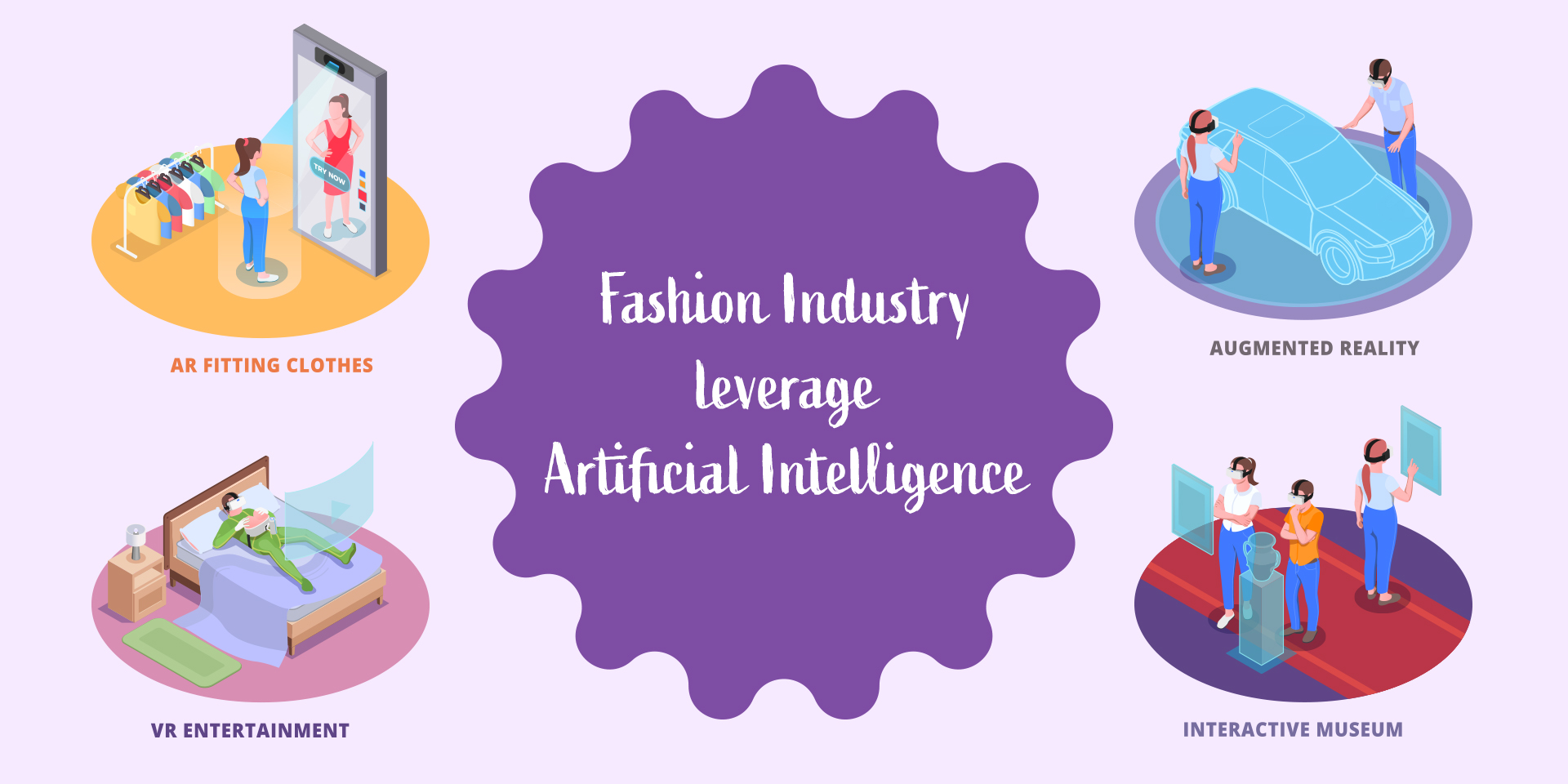Artificial Intelligence (AI) is a powerful technology that has the capability to understand everything that possibly a human could do. The impact of AI can be witnessed in different industries and the fashion industry is no exception. The use of AI in the fashion industry has increased tremendously globally. Various retail businesses in the fashion industry use AI to know what exactly the customers want.
In today’s fast paced and tech world, applications of artificial intelligence can be witnessed everywhere. AI in the fashion industry is used in two different channels – ecommerce stores and brick and mortar stores. The applications of artificial intelligence can be witnessed in both these stores. However, AI-driven e-commerce is much ahead compared to AI applications in physical stores.
Reading the mind of the customers
- When we talk about fashion, leading brands such as Zara, H&M, Tommy Hilfiger, Nike, ASOS, and many others have embraced AI applications.
- The brands like Zara and Shein are able to come up with clothes that are into the latest fashion trends within a time period of just 15 days. How is it possible for these brands to predict and match the changing trends so quickly?
- It is all due to leveraging the power of artificial intelligence in fashion.
- The use of AI in the fashion industry helps leading brands to recognize the changing trends to stay ahead in the competition from other brands, and deliver instant delight and contentment to the customers.
Visual recognition of AI
If a customer has been using Amazon or any other e-commerce portal on a regular basis, it automatically recommends products based on their purchase history or previous searches.
This is AI-driven visual recognition.
The use of AI in the fashion industry makes things easy and convenient for the customers, and AI-driven recommendation is one such way.
Visual recognition powered by AI also helps brands to understand which products are witnessing a tremendous demand, and which ones aren’t.
Based on the sales data, the purchase departments of various retail businesses can take a call on the volume of fashion products to be kept sufficiently in stock and which ones to avoid.
The use of AI in the fashion industry can help in better inventory management by preventing overstocking of unnecessary fashion items.
AI-driven marketing
- For marketers, AI has become a powerful and all-knowing tool.
- The marketers in the fashion industry use AI to maximize conversions by using push notifications, personalized emails, and targeted advertisements. All of these marketing strategies are powered by AI.
- On the basis of the searches and number of visits made to a website, AI algorithms are able to tell fashion brands which customers are most likely to make the purchase.
- The data generated by AI algorithms is used by brands to repeatedly target the most likely customers to make a purchase soon with reminders and messages about the product(s) which they have added in the cart or saved for later.
- Fashion brands also use several AI applications like social listening. Using such AI applications, fashion retailers can understand what customers are saying about a brand, its competitors, and hot topics of discussion on social media.
Better pricing of products
- The fashion industry is increasing with each passing day.
- Based on the market and their position in the market, fashion brands experiment with the pricing and discounts as well.
- Newer brands try to compete with the well-established fashion brands in the market by offering their product at lower prices, or giving higher discounts.
- On the other hand, established players in the market try to increase their price points to the maximum in order to get higher margins.
- The use of AI in the fashion industry helps brands to keep a close eye on the prices of competitors, thus enabling them to determine competitive price points.
Better size recommendation, fewer returns
- Many online fashion e-commerce websites use AI for effectively recommending the correct size to customers on a product-to-product basis.
- Size recommendations by online retailers is possible due to AI algorithms analysing previous data of customers.
- The use of AI applications in fashion, especially in the case of online purchases has effectively been able to solve the problem of product returns due to size issues, which was a major challenge for online fashion retailers.
Artificial intelligence in fashion stores
- Along with AI, augmented reality (AR) and virtual reality (VR) are two powerful technologies that are transforming both the physical as well as online shopping experience.
- In 2015, the popular brand Tommy Hilfiger launched a virtual reality fashion store, providing a 360-degree virtual reality experience to the customers, taking the traditional shopping experience to a completely new level.
- Alibaba has also launched their AI-driven stores having smart garment tags and intelligent mirrors.
The growth of AI in the fashion industry is still expected to reach its full potential in the coming years. AI in the fashion industry will create a huge impact when it starts to be innovative and creative.


